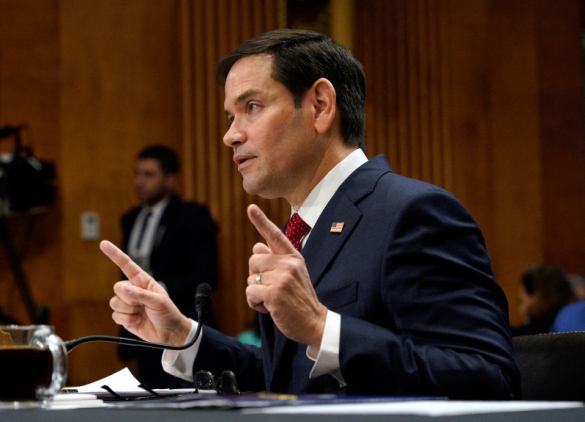This article was initially published January 16 and has since been updated.
On January 15, Marco Rubio was questioned by the U.S. Senate Committee on Foreign Relations—where he served from 2011 to 2024—in the process of his confirmation to become Donald Trump’s secretary of state. In the over four-hour hearing, Rubio, the former U.S. Senator from Florida, was questioned by 22 senators on a litany of issues related to the country’s international relationships.
Rubio, a Cuban American Spanish-speaker, spoke on several issues in the Western Hemisphere, including U.S.–Mexico relations, insecurity in Haiti, and the regimes in Cuba, Nicaragua, and Venezuela. He spoke, too, on his overarching concerns about China’s presence in Latin America, including his worries about the Panama Canal.
On January 20, Rubio became the first of Trump’s nominees to be confirmed when he received a unanimous 99-to-0 vote in the Senate. He is now the the highest-ranking Latino official in U.S. history.
Rubio’s team announced that in the week of January 26, Rubio will take his first official trip as secretary of state to Central America and the Caribbean. On the itinerary is Panama, Guatemala, El Salvador, Costa Rica and the Dominican Republic. State Department spokesperson Tammy Bruce said Rubio’s choice of the region reflects his priority as the United States’ top diplomat. “We won’t continue to ignore the region as other administrations have,” she said. “Engaging with our neighbors is a vital element in addressing migration, supply chains and economic growth, which are key to Secretary Rubio’s pursuit of foreign policy focused on making America strong, prosperous, and safe.” Rubio is the first secretary of state to initiate his travels in Central America since 1912.
What did Rubio say in the hearing? How does he think the United States should engage with the region? AS/COA breaks down the issues and spotlights key quotations.
